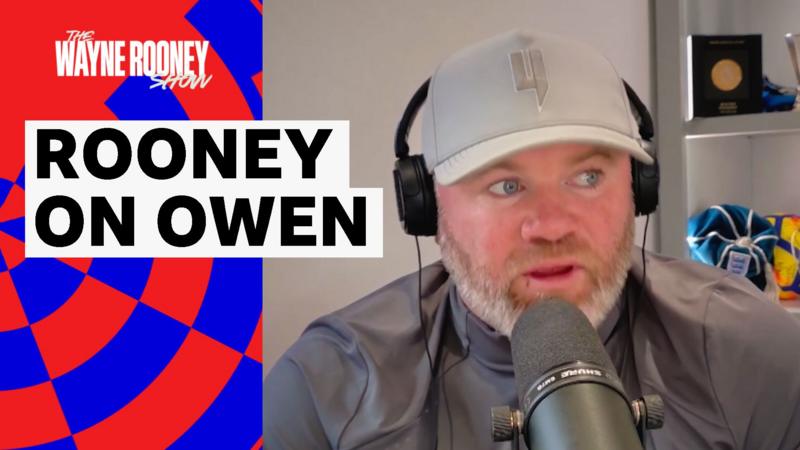Rooney Claps Back at Owen: Who's Truly the Greatest?



In a recent online exchange that has attracted considerable attention, Wayne Rooney addressed comments made by his former England teammate Michael Owen, concerning which of the two was a more prodigious talent in their teenage years. Rooney, never one to shy away from a spirited discussion, provided a thoughtful response to Owen's assertions. This dialogue not only stokes the flames of a friendly rivalry but also sparks a broader conversation about the development of young talents in English football.
Both Wayne Rooney and Michael Owen burst onto the international scene as teenagers, heralding new eras for English football. Owen made his mark first, debuting for Liverpool in 1997 at just 17 and scoring a memorable solo goal against Argentina in the 1998 World Cup. His pace, finishing, and poise positioned him as one of England’s brightest stars. Rooney followed suit, debuting for Everton at 16 in 2002 and scoring an iconic last-minute winner against Arsenal. By Euro 2004, Rooney had established himself as England's golden boy, demonstrating a fierce competitiveness and a rare blend of physicality and technical skill.
The debate initiated by Owen on his social media revolved around who was the more naturally gifted player at a young age. Owen touted his own ascendancy in the international arena as evidence of his early prowess. He pointed to his Ballon d'Or win in 2001, when he was just 21, as a testament to his impact and talent at a young age.
Rooney's response was both gracious and reflective. He acknowledged Owen’s remarkable achievements but also highlighted the different paths their careers had taken. Rooney noted that while Owen’s career trajectory was phenomenal, the footballing landscape had evolved by the time he started his own career, presenting different challenges and opportunities. Rooney emphasized the importance of not only talent but also determination, resilience, and the continual development of one’s skills.
This debate sheds light on the immense pressure and attention placed on young talents in the sporting world. The expectations for these young athletes are extraordinarily high, and the paths their careers take are often scrutinized under a microscopic lens. Both players handled their rise to fame differently, impacted by their unique personalities and external expectations.
The conversation also highlights the shifting dynamics in player development within English football. In Owen's time, the route for promising youngsters often led straight into the first team, driven by performance in youth leagues and reserves. By the time Rooney came onto the scene, the landscape had shifted slightly, with greater emphasis on physical readiness and mental resilience, reflecting changes in the global game.
Moreover, this exchange between two of England’s finest strikers brings to light the subject of how talent is measured and valued. While Owen's early career was meteoric, Rooney's longevity and ability to adapt to various roles on the pitch argue for a broader understanding of what makes a footballer truly great. Rooney ended his career as Manchester United and England’s top scorer, a testament to his enduring quality and adaptability.
The banter between these two football icons not only entertains but also enriches the dialogue around sports development. It reminds fans and future generations of the diverse qualities that contribute to a player's success — not just natural talent, but also the ability to evolve and respond to the changing demands of professional football.
As the debate continues, both online and in pubs around England, it serves as a poignant reminder of the journeys these extraordinary talents have taken and the indelible marks they have left on English football. Whether one was more talented than the other as a teenager might remain subjective, but the impact both have had on the world stage is undeniably profound. From Owen's electrifying runs to Rooney's dynamic playmaking, both have provided countless memories for football fans around the globe.